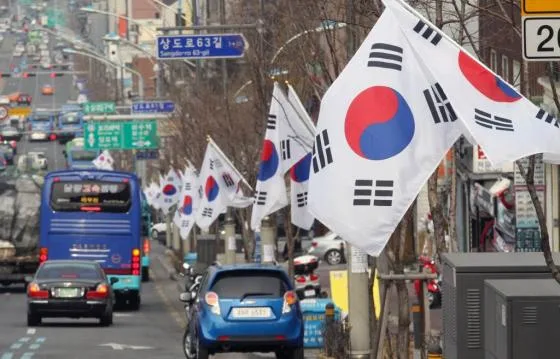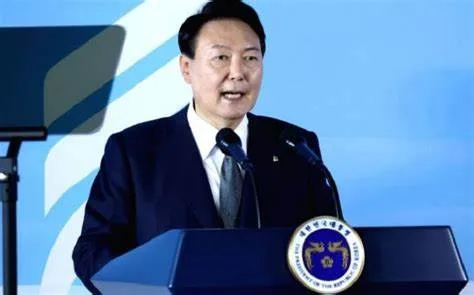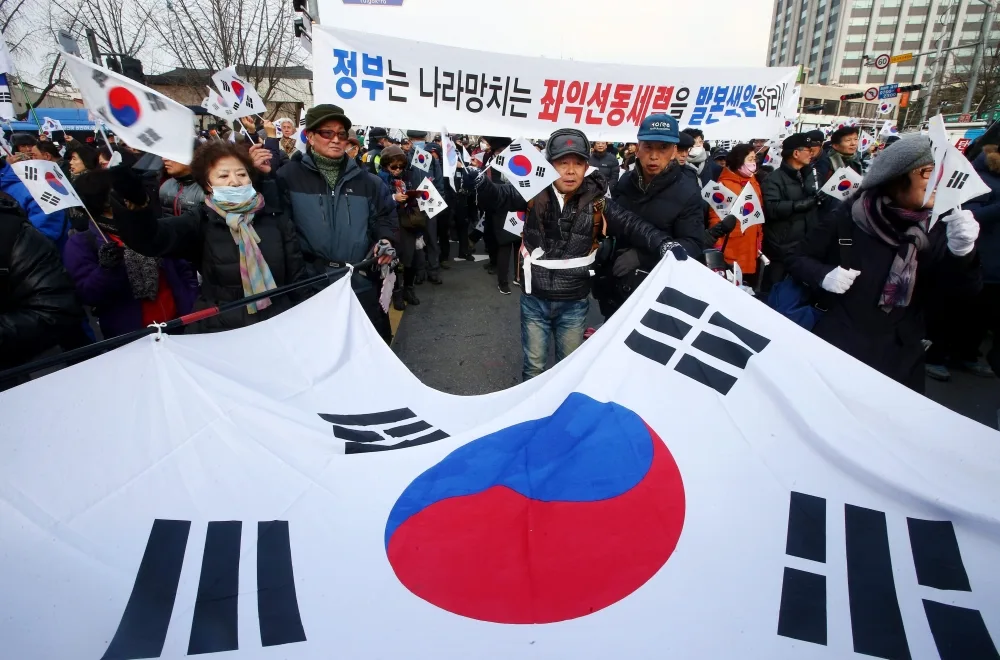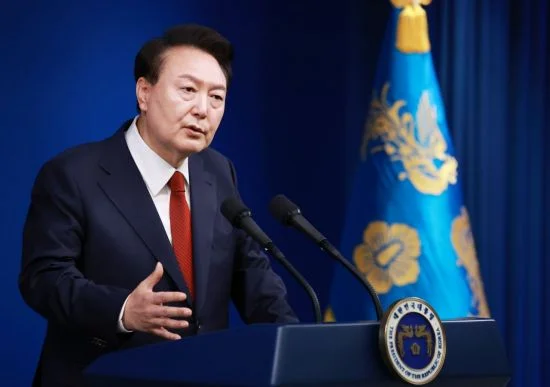With the aggravation of the crisis and the possible scenarios of the key ally country for the United States, US Secretary of State Anthony Blinken is expected to arrive in Seoul on Monday
Investigators in South Korea have suspended the execution of an arrest warrant issued by the judiciary against ousted president Yun Suk-Yul for questioning about his failed attempt a month ago to impose martial law in the country, after presidential security prevented them from doing so.

Anxiety and impossible execution
“Regarding the execution of the arrest warrant today, it was decided that its implementation was impossible on the ground due to the ongoing confrontation,” the office for the investigation of corruption of senior officials said in a statement. Concern for the safety of employees at the site led to the decision to suspend the implementation,”he said.
On Friday morning, the office announced that”the execution of the arrest warrant issued against President Yoon Suk-Yul has begun”. But soon the Yonhap news agency reported that the investigators who entered the presidential residence could not immediately arrest the deposed president because a military unit inside confronted them.
In this tense context, Anthony Blinken is expected to arrive on Monday in South Korea, Washington’s main ally in the region, where it faces challenges from China and North Korea.
According to Seoul, the focus will be on North Korea, which has so far remained silent about the political crisis facing its neighbor, but on Friday its Media spoke of a state of “social and political chaos”.
Here is a presentation of the possible scenarios in the case, and the political crisis that has been going on for a month following the president’s attempt to impose martial law, before the expiration of the arrest warrant, Monday:

Another attempt
The”bureau for investigation of corruption of high-ranking officials” can seek to execute the arrest warrant again before its deadline expires. The office, after suspending Friday’s attempt, said that”the decision on future steps will be made after additional review”.
If Yun is arrested before Monday, the office will have 48 hours to request a new warrant for his formal arrest or release.
Yun’s lawyers reiterated that the arrest warrant issued against him was “illegal”, vowing to “take legal action in connection with the execution of the warrant contrary to the law”.
In addition, the Presidential Security Service considered that the elements of the investigation bureau “illegally intruded” on the campus of Yun’s residence, noting that it will hold them legally responsible for this matter.
Two senior officials of the Presidential Protection refused the request of the police to appear for questioning on Saturday, justifying it by the”serious nature” of the mission to protect Yun, according to a statement seen by AFP.
Even if the Bureau of Investigation is unable to arrest yun before the sixth of January, it can request the issuance of a new warrant valid for seven days. It can also be more severe, allowing the president to be suspended for more than 48 hours.
New memo
Experts believe that the South Korean judiciary is likely to approve the issuance of a new warrant that is more stringent than the previous one, given that the isolated president refused to comply with the existing warrant, and he had previously refused 3 times to respond to subpoenas in order to be interrogated.
Political analyst Park-Sang Byung told Agence France-Presse that the most stringent warrants are usually issued “when a suspect refuses to cooperate with the investigation”. He pointed out that Yun “also incited and encouraged his extreme (right-wing) supporters, in what the court may consider, from its point of view, a practical admission of criminal charges”.
But the execution of a new warrant may meet the same fate if Yun refrained from leaving his residence and remained in the custody of his protection apparatus, which includes a military unit.

Acting president
The month-long crisis and the confrontation that took place on Friday between the investigators and the Presidential Protection Service prompted the investigation bureau and the opposition Democratic Party to ask Choi Sang-Mok, the acting president of the Republic, to issue an order to the protection service to cooperate in the case.
An official at the investigation bureau said on Friday that 20 investigators, supported by 80 policemen, took part in the operation, but faced about 200 soldiers and members of the Presidential Security Service who formed a human wall to prevent them from passing.
The investigative bureau confirmed that” it is practically impossible to execute the arrest warrant as long as officials of the Presidential Security Service continue to provide protection ” to Leon.
Choi, who is also a deputy prime minister and finance minister from the Yoon “people’s power” party, has not yet made any comment.
Experts believe that Choi’s request to the security service to cooperate with the investigation will increase the chances of the arrest warrant being executed before Monday.
However, Choi is facing criticism from his party for appointing two judges to fill two of the three vacancies on the Constitutional Court, which is considering Parliament’s decision to impeach Yun. With this appointment, the chances of the court approving the dismissal have increased; this now requires the approval of only 6 judges out of 8.
Prior to the appointment of the two judges, a single vote against the ratification of the dismissal could have resulted in the court not rejecting the parliament’s decision, and Yun returning to his duties.
Myongji University Political Science Professor Shin Yul told AFP that given the current context,” it is unlikely that Choi will cooperate with the investigation bureau’s request ” on presidential security cooperation.

Waiting for the court
After Yun’s ouster, the parliament also dismissed the first acting president, Han Dak-Soo, for failing to fill the three vacancies on the Constitutional Court. The opposition saw the appointment as a step that enhances the chances of the judiciary ratifying the impeachment of the president.
The Constitutional Court has 180 days to approve or dismiss the dismissal. Until this is decided, Yun officially remains the president of the Republic, but does not fulfill his powers.
Experts believe that removing the status of President from Yun would have made the task of investigators easier to pursue or formally arrest him.
The long time available for the court to decide the case could delay the proceedings, the court having pledged to consider it quickly due to its importance.
But Yun’s defense lawyers stress that the court should exhaust the full legal time limit to examine “the circumstances that led to the declaration of martial law”.
